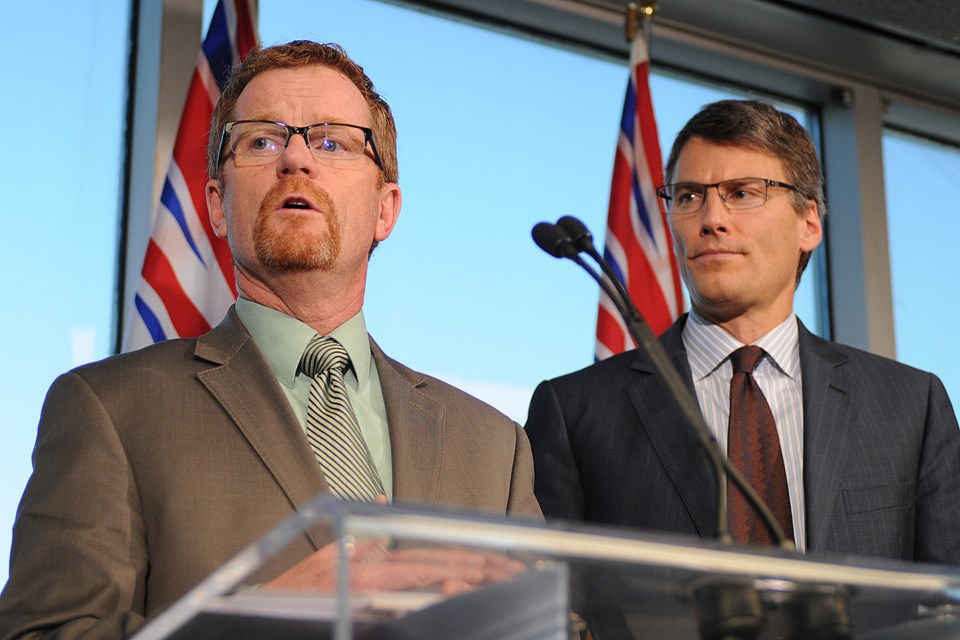The City of Vancouver and the province will fund new beds for psychiatric patients, additional teams of social workers and improved information sharing between police and health agencies in an effort to combat the city’s mental health “crisis,” the mayor and health minister announced today.
Mayor Gregor Robertson and Health Minister Terry Lake told reporters at Canada Place Wednesday that a new raft of programs, negotiated after the mayor and Police
Chief Jim Chu declared a mental health crisis in September, are aimed at approximately 300 individuals who suffer from the most severe forms of mental illness and addiction.
“The stories I’ve heard over the last five years, and statistics we’ve grappled with have been troubling — the emergency room visits and police calls related to mental illness,” Robertson told reporters. He defended Vision Vancouver’s record on building new supportive housing and emergency shelters but said those programs don’t help the city’s most difficult cases.
Lake said the intended targets of the new programs are often homeless and are more likely to have run-ins with the police related to their mental illnesses. The government has promised $20 million in new spending province-wide.
That includes a new emergency psychiatric unit at St. Paul’s Hospital, which Robertson told reporters in September had a 43 per cent increase in patients with severe mental health disorders over the past three years.
According to Coast Mental Health director Darrell Burnham, treating a person with a crisis-level mental disorder involves a tricky handoff between first responders, often police, and health agencies. And at the end of a visit to the emergency room, a mentally ill person can often be discharged and left completely alone.
“When you talk about people falling through the cracks, it’s a person leaving one social service and not making it to another,” said Burnham. He said the funding for a new Assertive Outreach Team, a unit of physicians, nurses, psychologists, should be able to help 80 to 100 new clients move more smoothly between social services.
But the programs, to be implemented over the next 120 days, does not go far enough in addressing people who need long term care, he said.
“There are some new units here, there, and everywhere [around the province], he said. “They’re looking at some offshoot services. It’s not sufficient yet, but it’s a start.”
Robertson said pointedly that these are early steps in addressing what he called the most difficult social problem facing the city. Robertson said the shift away from large mental institutions like Riverview Hospital in Coquitlam — a process often called deinstitutionalization — has helped the mentally ill fit into society. But it also created a complex system of health agencies that can be difficult to navigate. In extreme cases, he said, police are often the first people in contact with a mentally ill person in distress.
“[These people] need care in the health system and not in the justice system,” said Robertson.
Both the mayor and the minister agreed deinstitutionalization has been tough on municipalities.
“In the past, our mental health institutions were very visible, but our patients were invisible,” said Lake, referring to facilities like Riverview. “Now our patients are very visible, but our supports are not overly visible to the public.”
Robertson said any large-scale renewal of standalone mental institutions is off the table.
“We do not unfairly stigmatize people with mental illness,” he said. “Most people with mental illness lead normal lives and receive support in their communities.”
The mayor added the city’s next steps include a mental health and addictions task force, but he said it was too early to talk concrete plans.
(Note: This story has been updated with additional comments since it was first posted Nov. 20.)
me@jonnywakefield.com
twitter.com/jonnywakefield



